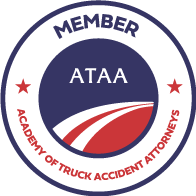FAQs
- What Should I Do Immediately After Being in a Car Accident?
- Dealing With the Other Driver’s Insurance Company?
- What is PIP Insurance?
- What is UM/UIM Insurance?
What Should I Do Immediately After Being in a Car Accident?
Seek medical attention (you will have insurance coverage for the costs of this care). Tell your physicians exactly but briefly how the injury occurred and describe ALL of your symptoms and complaints. Be sure to also report memory problems, confusion or disorientation, as these can be signs of a subtle and/or serious head injury.
Obtain the name (middle names or initials can sometimes be important), address, insurance information, vehicle license number and driver’s license number of each persons involved in the accident. If your injuries prevent you from doing this yourself, ask someone to take down this same information for you.
Be sure to get the names, addresses, and telephone numbers of all witnesses.
Take photographs of the accident scene, each of the vehicles involved, and any visible injuries (cuts, bruises). Digital camera photos have the best photo quality but if necessary take photos with your cell phone
Insist that a report be filed with the city police, county sheriff or state police.
File an accident report with DMV (retain a copy).
Do not discuss the accident or your injuries with anyone other than your physicians and lawyer. Do not agree to provide a recorded statement to the responsible party’s insurance company.
Do not sign any claim-related documents until you have consulted with an experienced lawyer. Often you can directly resolve the vehicle repair or total loss payoff process on your own, but your attorney may also assist you with this part of the process if you have any concerns.
Follow up on any medical advice you are given, including attending all scheduled appointments (“no show” notations in your medical records can hurt your case).
Dealing With the Other Driver’s Insurance Company
Insurance companies are in the business of making money; and lots of it. One way they do this so successfully is by paying as little as possible to resolve claims against their insureds (I know this because I used to be an insurance company claims adjuster and I also used to represent insurance companies). When I meet with new clients I often tell them that if it were a perfect world the insurance companies would resolve each claim on fair and reasonable terms with the result that I’d be practicing some other type of law – but it just doesn’t work that way. Not infrequently, insurance companies “deny” valid claims altogether or offer insultingly minor amounts to settle the claim of someone who has been PERMANENTLY injured through no fault of their own. I’m here for you to level that playing field and either negotiate a reasonable settlement or take your case to arbitration or trial if need be.
Do not be tricked into thinking that you have an obligation to give a tape recorded statement to the responsible party’s insurance company; there is no such obligation on your part and in fact it is not in your interest to give a statement (verbal or written). And, you also have no obligation to sign any “Authorizations” to allow the responsible party’s insurance company to obtain copies of your medical records or any other documents; it is in your best interest to have your attorney control the production of documentation.
I have one other word of advice here and that is do NOT settle your claim until your physicians have released you from care. You need to know for certain whether you will fully recover from your injuries or not – the answer to that question often substantially impacts case value.
Frequently, people refer to first-party Personal Injury Protection insurance coverage by its acronym: “PIP.”
PIP coverage is available to most persons under their own auto policy, with certain exceptions (this form of coverage is not mandatory for motorcycles, in Oregon, for example). PIP insurance covers one’s medical care costs for injuries sustained in a covered vehicle accident. This coverage is typically available for the first two years following an accident (Oregon law) and up to the amount of the policy limit (in Oregon, the minimum amount of coverage available is $15,000). Sadly, insurance companies are more and more frequently taking steps to “cut off” the payment of this benefit as early as they can; typically by asking the insured to see a physician that the insurance company unilaterally chooses, and generously compensates – following the examination (often called an “IME”) the physician generates a report calling the person’s claimed need for care into doubt and the insurance company then “denies” the claim. This is but one more reason to retain an attorney; and early on. (NOTE: Our office works on a contingent fee – we only earn a fee if we obtain compensation for you – and so it makes financial sense to retain us sooner than later).
PIP coverage can also be available for loss of income. There is a cap on the amount of this benefit and (by law) the compensation rate is less than one’s rate of pay. Also, in most states (Oregon included) a person must miss a significant number of days from work, consecutively, before they are entitled to this benefit. As with PIP coverage for medical care cost reimbursement, insurance companies tend to try to avoid, limit or delay their obligation to pay wage loss reimbursement, with the result that one can often need the assistance of an attorney.
Typically, if you are injured in a car accident caused by another driver’s negligence, you proceed to submit a “third-party” claim to their insurance company. However, on occasion the responsible driver has no insurance, in which event we will assist you in asserting what is called an “Uninsured Motorist” (or “UM”) claim to your own insurance company. The laws of most states require that each insurance policy include such coverage. There’s no reason to be hesitant to assert a UM claim; you pay extra premium for that coverage.
Most state’s laws also require that insurance policies also include “Underinsured Motorist” (or “UIM”) coverage. This coverage applies in those cases where the responsible driver had some insurance, but not enough to fully compensate you. The law in this area can be a bit tricky, making it wise for you to retain counsel early on.
TIP: Call your insurance agent and ask them to confirm how much UM/UIM coverage you have. The costs to increase the amount of your UM/UIM coverage is very modest, and the difference can change lives. In my 20+ years of experience in the field I have seen dozens of true “horror stories” involving people who have sustained catastrophic and/or career ending injuries instances where the responsible driver had either no insurance or only “minimum limits” and the injured person themself had only the minimum amount of UM/UIM coverage.
If you have any other questions call us; there is no charge for “answers.”








